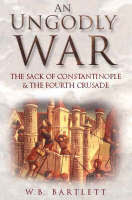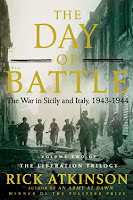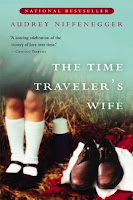 TITLE: An Ungodly War—The Sack of Constantinople & The Fourth Crusade
TITLE: An Ungodly War—The Sack of Constantinople & The Fourth CrusadeAUTHOR: W. B. Bartlett
PUBLISHER: Sutton Publishing, 2000
RATING
5/5 “The Dark Knight Returns”; 4/5 “Knights who say, ‘Ni’”; 3/5 “Knight Rider”; 2/5 “Knight and Day”; 1/5 “Marion ‘Suge’ Knight”
SCORE 3/5
Almost exactly 800 years before the invasion of Iraq, there was the fourth crusade. Some things never change.
Commentators have been quick to see parallels between the medieval crusades and America’s wars in Iraq. Rowan Atkinson’s definitive retelling of the First Gulf War was titled “Crusade”. Director Ridley Scott hinted at this theme in 2003’s “Kingdom of Heaven”. Doing a Google search for “crusade Iraq” gets you something like 21 million hits.
It’s not an analogy W. B. Bartlett makes in his 2000 study, “An Ungodly War”, but after reading this clear if rather dry account, the parallels between the two events are inescapable. The fourth crusade is the story of how a Western army in the Middle East, lied to by its leaders and diverted in the name of money, turns on its allies and attacks the wrong target. Sound familiar? Let’s look at the evidence.
Misleading Your People
The reason for any crusade was to recapture the Holy City of Jerusalem. The Pope himself promised anyone reaching the Holy City a VIP pass to paradise, no questions asked. However, the failures of the second and third crusades had shown that reaching Jerusalem would be a tall order. The leaders of the crusade reckoned attacking Egypt would be much easier. But how to break the news to the men?
“Many believed that the Holy City was the ultimate destination of the crusade, and any idea that this was not, in fact, the case could have the gravest repercussions for the success of the enterprise,” writes Mr Bartlett.
Of course, lying to your army about who the enemy was and why they were fighting would be incredibly dishonest and morally bankrupt. So that’s what the crusade’s leaders did.
Cui Bono?
Deciding where to go was one thing. Getting there was another. Travel from Europe to Egypt required ships and sailors, and those required money. The ablest sailors of the day were the Venetians. They agreed to transport the crusade for 85,000 marks ($500 billion in today’s money, though I could be making that up), which turned out to be about double what the crusaders could afford.
To pay off part of their debt, they agreed to capture the city of Zara (Zadar, in modern Croatia) for the Venetians. Which happened to be a Christian city. And nowhere near the Holy Land. But the crusaders needed the money, so they attacked it anyway.
For his sources, Mr Bartlett relies heavily on the works of crusaders Geoffrey of Villehardouin and Robert de Clari, which although inescapable, is a bit like relying on George W Bush’s “Decision Points” for a balanced account of the invasion of Iraq. Nevertheless, even from their chronicles, it’s clear many started to have doubts at this stage. Some allies started bailing on the whole enterprise, leaving a sort of “coalition of the willing”, if you like.
Mission Accomplished
European civilization’s greatest bulwark against the Muslims was the Byzantine Empire, with its capital at Constantinople (now it’s Istanbul, not Constantinople, been a long time gone, Constantinople). Constantinople was one of the greatest cities in the world, economically, spiritually and culturally, New York and London and Paris all rolled into one.
As Mr Bartlett explains at some length, the Byzantines were also Christian, but not Catholic. As a result, although they were ostensibly on the same side as the crusaders, there was little love lost between them. So when the son of a recently deposed ex-emperor appeared at the crusader camp in Zara, offering them Constantinople’s wealth if they helped them retake the imperial throne, he found a receptive audience.
The title of the book rather gives the ending away. Constantinople fell to the crusaders in April 1204, but only after it had been burned down twice, the library destroyed, and its churches systematically plundered. The crowning achievements of this crusading army had been to devastate Christendom’s greatest city, slaughter thousands of Christians, and enrich a bunch of Italian merchants.
It’s a truly damning indictment of the mindless stupidity of religious bigotry and fanaticism, and of the enormous threat posed by powerful, greedy men who feel accountable to nobody. The analogy to the Iraq war isn’t perfect, I know. On the Western side, the toughest, most bloodthirsty bunch were the French, for a start. Nevertheless, I strongly feel it is modern events that make reading this book now worthwhile.
“An Ungodly War” would have made a far more interesting read if Mr Bartlett had been willing to go out on a limb and draw these kinds of parallels. Instead, the conclusion is littered with ponderous, grade-school platitudes such as, “we should reflect on the demise of a great civilization … and ponder deeply that nothing, however permanent it might seem at the time, lasts forever”. Mr Bartlett is content to let history be history, and confines his opinions to questions of how to interpret events, rather than asking what significance they have for us today. This is a sane and sensible approach for a historian, I know, but when discussing the crusades (even back in 2000), this is the equivalent of not mentioning the elephant in the room.
This wouldn’t be so bad if the writing were a bit more lively. Mr Barltlett tries, but the results sometimes English creative-writing-class level cringeworthy: “only ten knights managed to fight their way back … the rest … lay still, where they had fallen, their life-blood drained from them.” Life-blood? Give that boy an “F”.
Nevertheless, the incredible episode of the fourth crusade deserves to be better known, and “An Ungodly War” is a solid introduction.


















